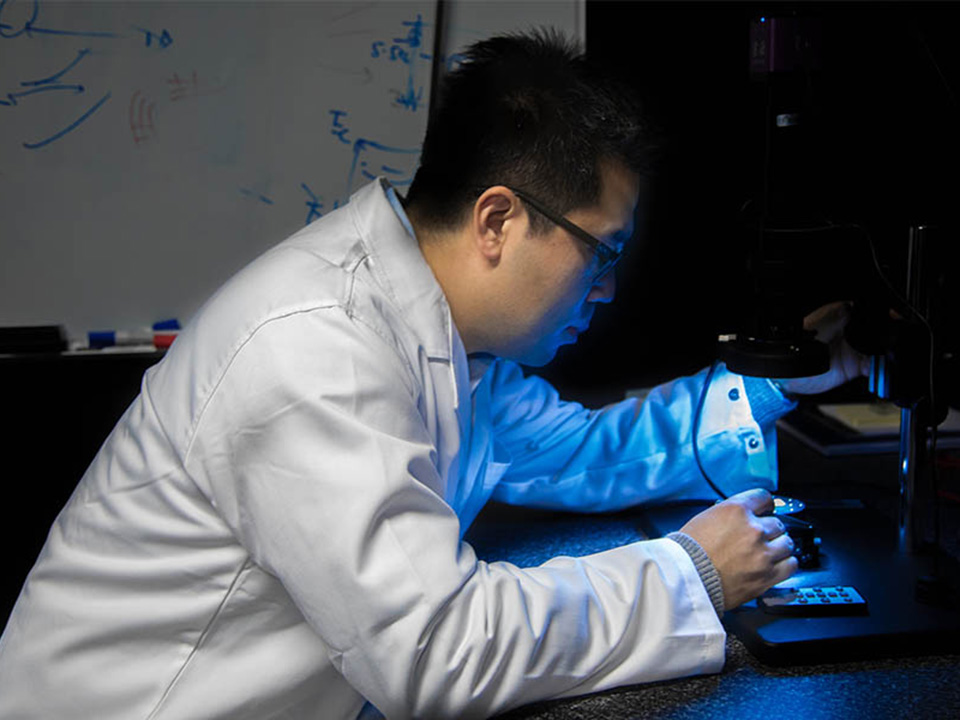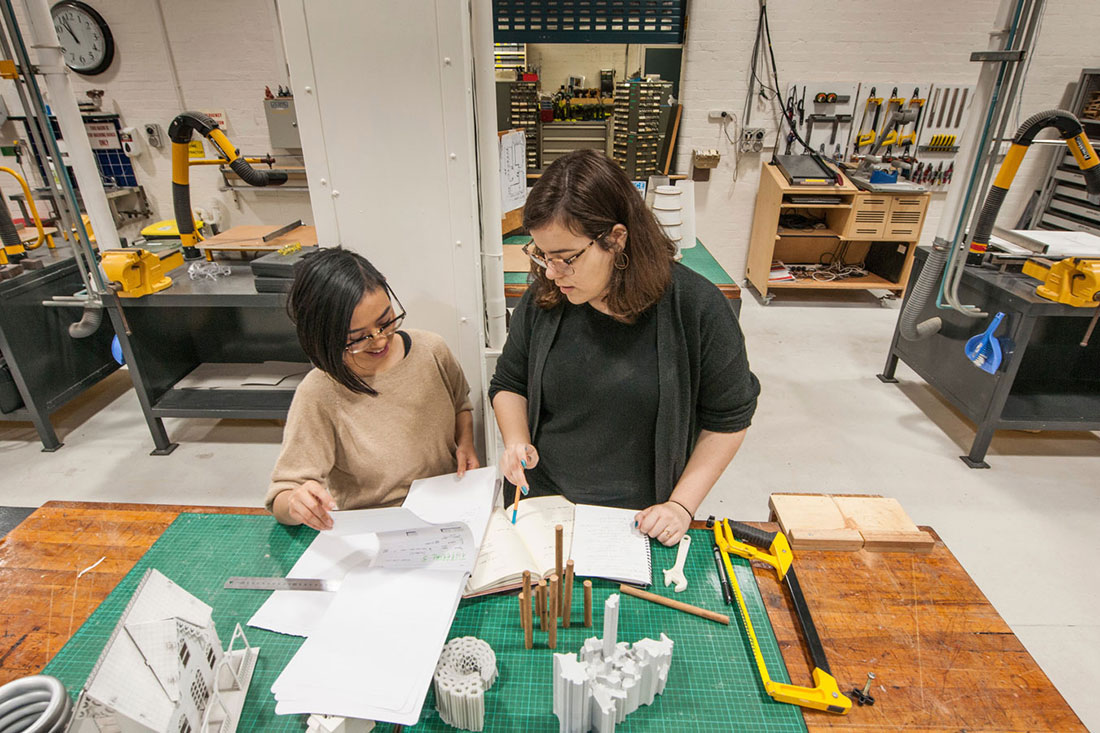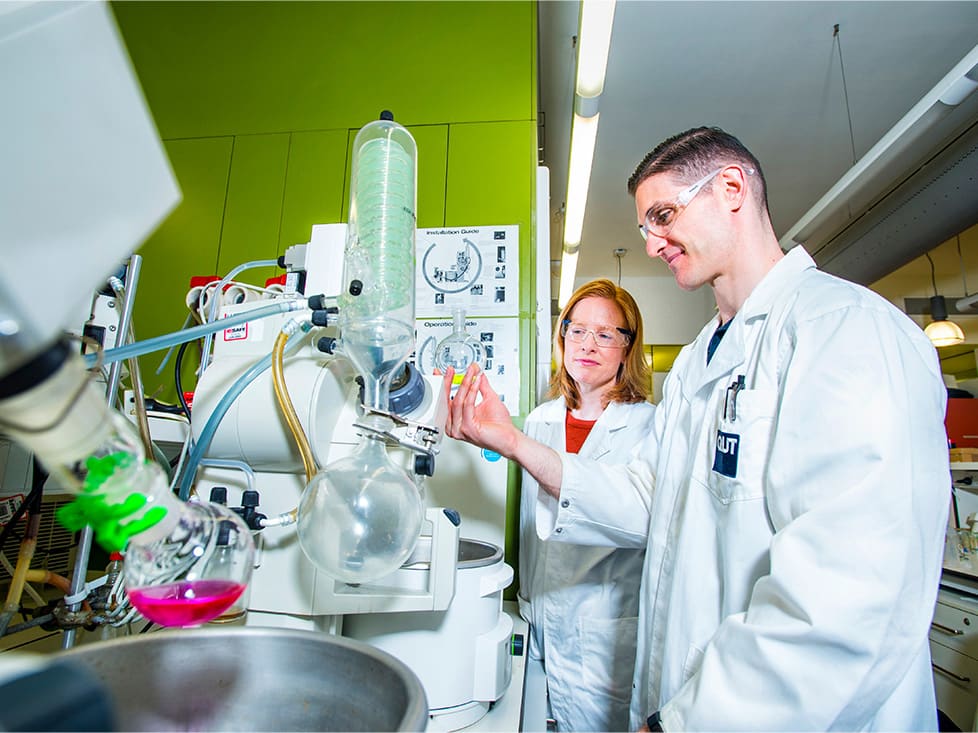
Our teaching and research advances the frontiers of the chemical and physical sciences to solve real-world challenges.
We specialise in research covering diverse topics, including:
- studies of particles, fields and radiation and their interaction with matter
- the design, synthesis, characterisation and study of the properties of molecules and materials
- the implementation of these molecules and materials in various applications.
Our outcomes have included finding cheaper and efficient materials for storing renewable energy, and determining the elasticity of crystals down to the atomic level.
Our research
Surface Science and 2D Materials
The Surface Science and 2D Materials Group investigates matter on the nano-scale to design and engineer 2D materials that have applications in electronics, energy, environmental and sensing technologies.
Molecular Recognition and Sensors
The Molecular Recognition & Sensors team is a multi-disciplinary research group interested in the development and application of nanotechnology for identification and quantification of selected analytes.
MACROARC Soft Matter Materials Group
Established in 2008, and now calling Brisbane home, the MACROARC lab houses over 40 active researchers in the field of synthetic and physical polymer material science.
Inorganic Nanomaterials Lab
The Golberg Group at QUT designs inorganic nanomaterials for structural and green energy applications.
National Battery Testing Centre
The National Battery Testing Centre (NBTC) was established at the Queensland University of Technology to test multiple types and sizes of battery systems in real-world conditions for Australian applications.
Medicinal Molecules and Materials Group
The Medicinal Molecules and Materials Group is a collaborative team of organic, medicinal and polymer chemists, looking to understand how precision chemistry can be used to solve clinical health problems.

Our research partnerships
We're working with you to find solutions to your problems. Reach result through a collaborative partnership with our experienced research experts who make active contributions to their fields.
Learning and teaching experience
Our chemistry and physics courses have a strong applied emphasis so our students spend a significant amount of time in laboratories developing extensive practical skills.

Our facilities
Our staff

- Position
- Head of School, Chemistry and Physics
- School
- School of Chemistry & Physics
- Research fields
- Macromolecular and materials chemistry
- Organic chemistry
- Physical chemistry
- j.blinco@qut.edu.au

- Position
- Deputy Vice-Chancellor and Vice-President Research
- Division / Faculty
- Research Portfolio
- Research fields
- Macromolecular and materials chemistry
- Nanotechnology
- Organic chemistry
- christopher.barnerkowollik@qut.edu.au

- Position
- Pro Vice-Chancellor (Research Infrastructure)
- Division / Faculty
- Research Portfolio
- Research fields
- Analytical chemistry
- Physical chemistry
- Other chemical sciences
- stephen.blanksby@qut.edu.au

- Position
- Deputy Dean
- Division / Faculty
- Office of the Deputy Dean
- Research fields
- Condensed matter physics
- Nanotechnology
- jennifer.macleod@qut.edu.au

- Position
- Australian Laureate Fellow
- Division / Faculty
- School of Chemistry & Physics
- Research fields
- Materials engineering
- Physical chemistry
- Condensed matter physics
- hx.wang@qut.edu.au

- Position
- Professor
- Division / Faculty
- School of Chemistry & Physics
- Research fields
- Physical chemistry
- Analytical chemistry
- Environmental management
- g.ayoko@qut.edu.au

- Position
- Professor
- Division / Faculty
- School of Chemistry & Physics
- Research field
- Macromolecular and materials chemistry
- t.dargaville@qut.edu.au
News and events

Crystal clues on Mars point to watery and possibly life-supporting past
A QUT-led study analysing data from NASA’s Perseverance rover has uncovered compelling evidence of multiple mineral-forming events just beneath the Martian surface – findings that bring scientists one step closer to answering the profound question: did life ever exist on Mars?

Australian Cancer Atlas 2.0 wins prestigious national awards
QUT and the Cancer Council Queensland have been recognised with two Oceania Geospatial Excellence Awards for the Australian Cancer Atlas 2.0.

Housing as a human right the focus of new QUT research group
QUT has established a new cross-disciplinary research group to tackle the housing crisis with more than 50 experts analysing the challenges and current policies in a quest to provide solutions.
Contact us
Contact the School of Chemistry and Physics for more information on our courses, research and staff.